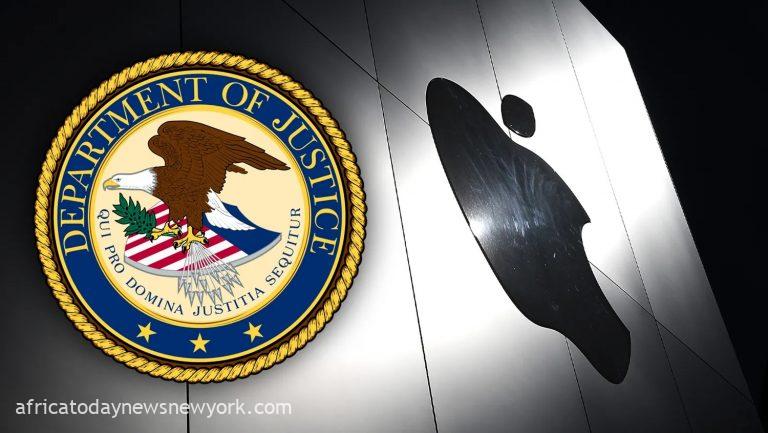The United States has dragged Apple to court in a landmark lawsuit where it is accusing the tech giant of monopolizing the smartphone market and crushing any form of competition.
In the legal action, the justice department is alleging that the company abused its control of the iPhone app store to “lock in” customers and developers.
It accuses the firm of taking illegal steps to thwart apps seen as a threat and make rival products less appealing.
Meanwhile, Africa Today News, New York reports that Apple has vowed to “vigorously” fight the lawsuit and denies the claims.
The sprawling complaint, filed at a federal court in New Jersey along with the attorneys general of 16 states, marks one of the biggest challenges to date for Apple, which has been fending off mounting complaints about its practices in recent years.
Read Also: Unesco Urges Ban On Smartphones In Schools
It alleges that Apple used “a series of shapeshifting rules” and restricted access to its hardware and software, in a bid to boost its own profits while raising costs for customers and stifling innovation.
“Apple has maintained monopoly power in the smartphone market not simply by staying ahead of the competition on the merits but by violating federal anti-trust law,” Attorney General Merrick Garland said at a press conference announcing the suit.
“Customers should not have to pay higher prices because companies break the law.”
The 88-page complaint focuses on five areas where Apple allegedly abused its power.
For example, the US alleges that Apple used its app review process to thwart development of so-called super apps and streaming apps, because it was worried such apps would provide less incentive for customers to stick with iPhones.
It also says Apple has made it difficult to connect iPhones to smart watches made by rivals and blocked banks and other financial firms from accessing its tap-to-pay technology, allowing Apple to earn billions in fees from processing Apple Pay transactions.
The complaint also focuses on the way Apple treats messages sent from rival phones, distinguishing them with green bubbles and limiting videos and other features. It says Apple’s moves have created “social stigma” that has helped the tech giant maintain its grip on the market.
Apple said customers were loyal because they were happy and that under US law it was free to choose its business partners. It has pointed to privacy and security concerns to justify its rules.

